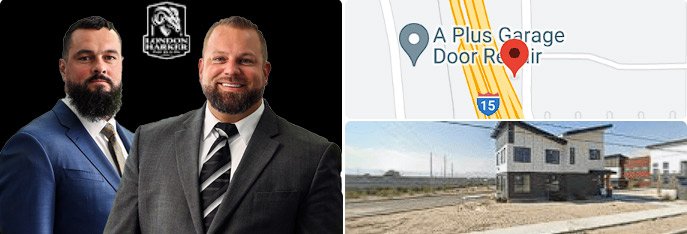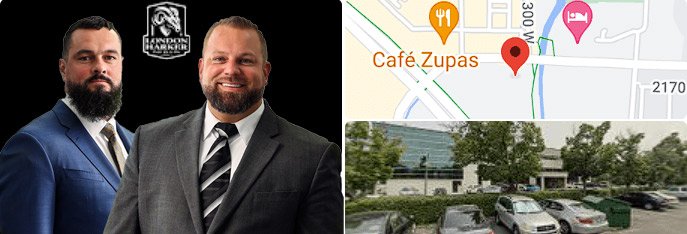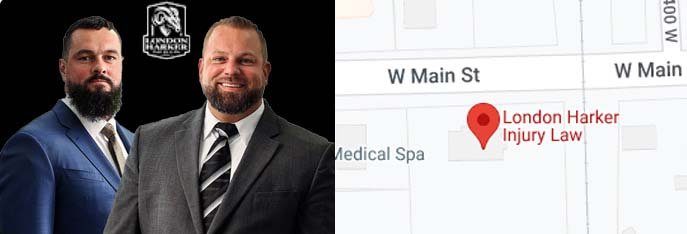Posted on Wednesday, September 24th, 2025 at 3:19 am
Law firms today operate in a marketplace defined by intense competition and rapidly evolving consumer expectations. For legal professionals in Utah, success hinges not only on competence and a winning track record but also on strategically aligning marketing efforts with rigorous ethical standards—particularly those concerning transparency and client communication.
In an era where potential clients wield countless online resources for evaluation, the firms that thrive are those that become a trusted destination for thought leadership and clarity, rather than just “a source” among many. Achieving this level of visibility and trust requires a dual commitment: mastering modern SEO and content strategy while strictly adhering to the Utah Rules of Professional Conduct (Utah R. Prof. Cond.) Rule 7.1 and Rule 1.6.
This comprehensive guide explores how Utah law firms can build a resilient practice by prioritizing data-driven marketing, unwavering client communication, and complete ethical transparency.
The New Baseline: Transparency and Trust in Client Relationships
The cornerstone of a thriving legal practice is the attorney–client relationship. Yet surveys consistently show that the number one complaint from clients is lack of communication. Poor communication accounts for a substantial share of malpractice claims—far outweighing mistakes in the application of law.
For Utah residents navigating high-stakes areas like personal injury and Utah’s no-fault claims process or wrongful death matters, transparency is the bedrock of trust. At London Harker, we remind clients that trust isn’t built overnight—it’s cultivated through consistency, honesty, and clarity.
What Clients Look for in Utah Attorneys
- Experience and Winning Track Record – Many clients cite experience as their top priority. They want reassurance that the attorney has the skills and proven results to handle complex cases.
- Reputation and Reviews – With consumers relying heavily on ratings and testimonials, reputation management is paramount. How a firm responds to negative reviews can either reinforce credibility or erode it.
- Pricing and Financial Clarity – Clear explanations of contingency fees in personal injury or billing structures in family law help reduce stress and support informed decisions.
- Honesty, Ethics, and Trust – Overpromising (“we win every case”) can backfire. Emphasizing ethical representation builds long-term trust.
- Communication and Accessibility – Clients expect responsiveness. Regular updates, plain-language explanations, and secure portals are critical to client satisfaction.
Navigating Utah’s Legal Landscape: Ethics in Advertising and Firm Naming
Utah law firms must balance ambitious digital visibility with strict compliance. The core standard for lawyer communications is consolidated into Utah R. Prof. Cond. 7.1: communications regarding a lawyer’s services must not be false or misleading.
Avoiding Misleading Communications
- A statement is misleading if it contains a material misrepresentation of fact or law or omits necessary facts.
- Even truthful results can be misleading if they create unjustified expectations for future clients.
- Comparative claims (e.g., “best lawyer in Utah”) require substantiation and often a clear disclaimer.
Firm Names and Trade Names
Under Utah guidance (including Ethics Opinion 21-02), firms may use trade names if they are not misleading. Examples include:
- Permissible: “Doe Legal Group” if the firm legitimately has multiple attorneys.
- Misleading: “Doe & Associates” if no associates exist.
- Geographic names may be used, but a disclaimer could be required to avoid implying a government or nonprofit affiliation.
Attorneys can consult the Utah State Bar Ethics Advisory Opinions for specific scenarios.
SEO and Content Strategy: Becoming the Legal Destination
Ethical marketing in Utah doesn’t stop with compliance—it also requires strategic visibility. Search engines reward authoritative, transparent, and useful content, especially for sensitive “Your Money or Your Life” topics like legal services.
1. Keyword Research and Search Intent
High-conversion keywords often combine legal need and geography (e.g., “Salt Lake City wrongful death lawyer”). Long-tail topics like “how does Utah’s no-fault insurance work” attract qualified traffic seeking answers.
For example, pairing a hiring-intent page with informational content helps cover the full client journey. See: How Utah’s No-Fault Insurance Works After a Car Accident and What Not to Do After a Car Accident.
2. Thought Leadership Over Case Studies
Traditional case studies can feel self-promotional and narrow. Thought leadership (deep dives into statutes, procedure, and strategy) showcases practical expertise and builds trust—without straying into unjustified expectations.
Citations to primary sources help: Utah Code §78B-2-307 (Statute of Limitations) and Utah Code §78B-5-817 (Comparative Negligence).
3. Owning the Platform
Law firms should avoid running multiple competing websites, which often cannibalize rankings. Instead, they should invest in a single authoritative domain—optimizing for speed, schema markup, and local SEO.
At London Harker, this strategy has been supported by working with Pinecone Digital, a Utah-based digital agency that specializes in law firm SEO and content growth. Rather than spreading resources thin across several microsites, Pinecone helped consolidate efforts into a single authoritative platform—strengthening London Harker’s visibility, user trust, and long-term ROI.
Paired with a strong Google Business Profile and consistent publishing cadence, this single-domain strategy amplifies authority and avoids self-competition in search results.
The Confidentiality Imperative: Utah Rule 1.6
While transparency is vital in marketing and client communication, it must be balanced against the lawyer’s fundamental duty of confidentiality. Under Utah R. Prof. Cond. 1.6, a lawyer shall not reveal information relating to the representation of a client unless:
- The client provides informed consent;
- Disclosure is impliedly authorized to carry out the representation; or
- Disclosure is otherwise permitted under Rule 1.6(b) (e.g., to prevent death or substantial harm, to prevent/rectify certain crimes or frauds, to comply with a court order, or to secure legal ethics advice).
What Counts as Confidential?
“Information relating to representation” is broad. It can include the identity of the client, the fee payor, the terms of the fee agreement, and details about finances, health history, or family matters. In practice areas like wrongful death, some filings may become part of the public record, but attorneys must still safeguard sensitive client information wherever possible.
For client-facing education on sensitive issues, see our Wrongful Death Lawyer in Sandy page, which explains eligibility, damages, and timelines while maintaining confidentiality standards.
Elevating Client Communication: The Daily Practice of Trust
Compliance sets the floor; daily communication raises the ceiling. The following practices mitigate client anxiety, improve outcomes, and reduce ethics complaints:
- Active Listening – Let clients share fully, then reflect back what you heard to validate their concerns and ensure accuracy.
- Clear Expectations – From the first consultation, align on scope, timelines, possible outcomes, and how/when you’ll provide updates.
- Regular Updates – Even “no new updates” messages reassure clients that the matter is progressing and that they’re not forgotten.
- Empathy and Plain English – Acknowledge pain and stress. Translate legalese into clear, practical guidance.
- Enablement Through Tools – Secure client portals, SMS reminders, and scheduling links improve responsiveness without sacrificing confidentiality.
When discussing substantive topics, reference primary sources and plain-language explainers. For example, our guide on common mistakes after a Utah car crash demystifies insurance and evidence pitfalls while reinforcing clear next steps.
Conclusion: The Convergence of Ethics and Excellence
For Utah law firms operating in a highly competitive digital landscape, success depends on the seamless integration of ethical practice and strategic visibility. The guardrails of Utah R. Prof. Cond. 7.1 and Rule 1.6 ensure honest communications and confidentiality. Firms that thrive:
- Prioritize transparent client communication from intake to resolution.
- Invest in SEO-driven content strategies guided by search intent and primary sources.
- Commit to thought leadership that educates, not just advertises.
- Own their platform—a single, authoritative site—supported by trusted partners like Pinecone Digital for sustainable growth.
The firms that become truly “known” in the next decade won’t be the loudest—they’ll be the most trusted. By managing their own narrative, controlling their pipeline, and providing relevant, ethically sound information, they become the indispensable legal destination for Utah clients seeking clarity and justice.
Related resources:



